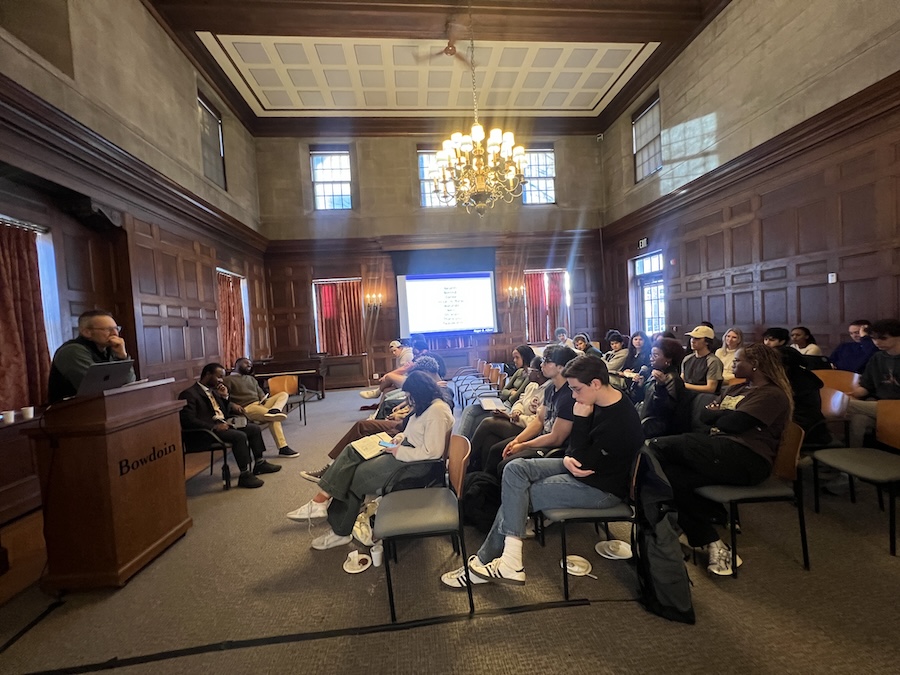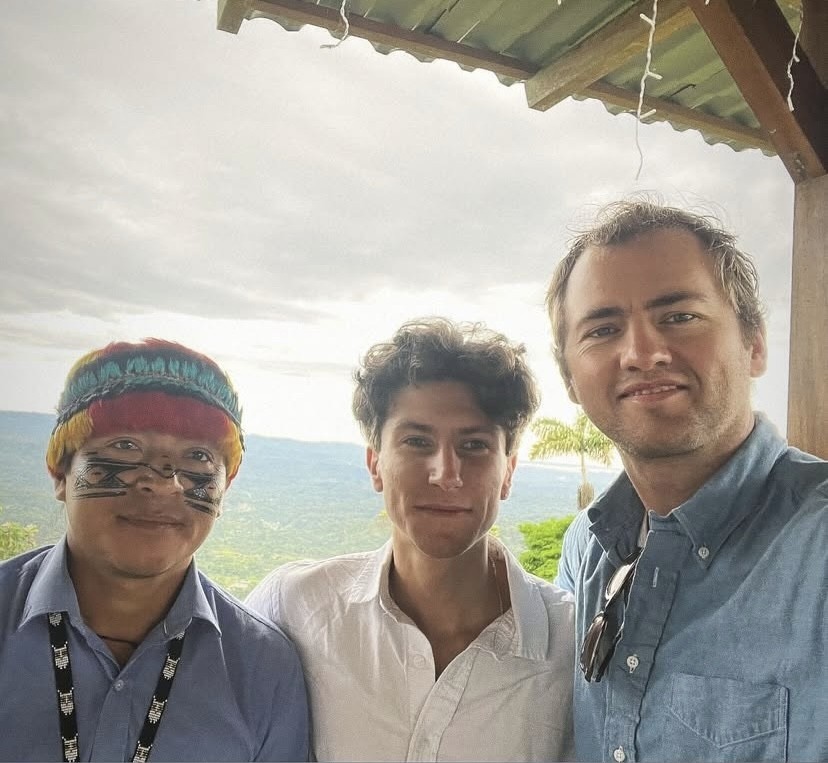‘Water is Life’ Panel Discusses Indigenous Lands and Laws
By Henry Bredar '19

Students, faculty, staff, and Brunswick residents gathered in Hubbard Hall last week to hear a discussion on indigenous lands and environmental justice. The event provided historical context for and analysis of the large protest that’s been waged against a proposed oil pipeline sited close to the Standing Rock Indian Reservation, which straddles North and South Dakota.
The discussion was a part of Native American Heritage Month, an event recognized nationwide every November and celebrated at Bowdoin for the first time this year. Dylan Goodwill ’17, the president of the Native American Students Association, planned the event and brought the panelists to Bowdoin. Goodwill is a member of the Navajo nation. She grew up in Window Rock, Ariz.
On the “Water is Life” panel, Associate Professor of Environmental Studies and History Matthew Klingle joined Darren Ranco, chair of the University of Maine’s Native American Program, and Nicholas James Reo, associate professor of environmental studies and Native American studies at Dartmouth College.
Klingle highlighted the role of Native sovereignty in the United States’ founding and its current identity. He said, “We are on Native land. North America is Native land.” With this acknowledgment, Klingle introduced the use of the Supreme Court in debates over Native sovereignty. In 1832, in the case “Worcester v. Georgia,” the court denied individual states sovereignty over Native lands, granting tribes their own sovereignty.
Klingle argued that this decision upheld the idea that Native peoples had sovereignty “that predates the American system of government.” In the same vein, citing the Dakota Access Pipeline, Klingle noted that the government doesn’t grant Native tribes sovereignty, it merely recognizes that it was never lost.
Ranco showed a short film, “Penobscot: A Fight for Ancestral Waters,” that covers the ongoing legal battle between the Penobscot nation and the state of Maine. Recently, in a case pitting Janet Mills, the attorney general of Maine, against the Penobscot nation, the U.S. District Court ruled that the water flowing through Penobscot territory did not belong to the Penobscot nation. “This contradicts previous treaty agreements, including past interpretations of the Maine Indian Land Claims Settlement Act,” the fim’s narrator argues, “and threatens the tribes deep ancestral and cultural ties to the river.”
The Department of Justice has sided with the tribe to appeal the ruling from the Portland court. The Penobscot tribe itself has been vocal and received much support from communities nationwide, highlighting the importance of the river to their culture and heritage.
One member of the tribe says, “If we lose that connection [to the river] we will lose a part of our humanity… and our longstanding connection to mother earth.” The role of nature in many tribes’ cultures was seconded by Reo shortly after, who said, “many indigenous people…have…a cosmology, a way of seeing the world…we see all living things as part of our community.” This relationship forms the foundation for the Penobscot’s connection to their river, which, as one protestor in the film noted, “is called the Penobscot for a reason.”
Reo summed up the position of those standing up to infringements on Native rights, whether it is in Standing Rock or in the Penobscot nation: “When people are working on protecting water in these communities…they are enacting responsibilities, they’re trying to give something back. So there’s this perspective of rivers as relatives and humans as their caretakers.”
The event concluded with a short question and answer session during which the audience expressed concerns for the Standing Rock Sioux and worries about the incoming Trump administration. The panelists all agreed that the solution to stopping federal infringement on Native rights is to stand together with Native nations to protect their sovereignty and the connection they hold with their land.



